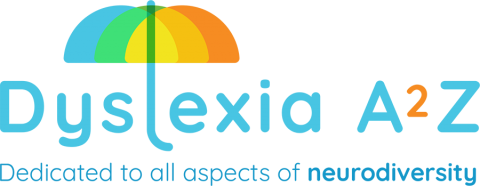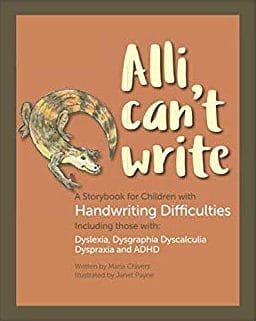Are Eye Tests Necessary for Children? Eye tests are essential for all of us but even more critical for our children. Yes, Yes and Yes, again! Many parents tell me...

Diet, Nutrition & Dyslexia
 Diet, Nutrition & Dyslexia
Diet, Nutrition & Dyslexia
It appears that more and more people have dyslexia, dysgraphia and other learning difficulties. Why is that? Is it because of our diets?
Take a look at the sections below, which may explain why there appear to be more people with these difficulties around.
Below you will find comprehensive information on Fatty Acids, Rosemary & Memory, Vegetarians, Iron Deficiencies & Zinc Deficiencies.
Introduction to Diet, Nutrition & Dyslexia
For many years there has been a lot of research to show that in some cases, dyslexia and other Specific Learning Difficulties (SpLD) could be due to a vitamin/mineral deficit.
Many scientific studies have shown that a nutritionally complete diet is necessary to develop the vision, learning ability and co-ordination. But, are our children getting a well-balanced diet, or should they be taking supplements? Can take supplements of fatty acids, zinc and iron cure dyslexia, dyspraxia, ADHD (ADD) and other SpLD’s?
Many parents who use these supplements say a resounding ‘yes’, and they now appear to be strong evidence to support this.
Fatty Acids & Dyslexia
Is a deficit in essential fatty acids to blame for the four-fold increase in dyslexia, dyspraxia, ADHD and other specific learning difficulties that we have seen over the last 20 years?
There have been many studies that have shown that abnormal levels of fatty acids in the brain could be behind the practical and behavioural problems experienced by dyslexic children and those with dyspraxia and attention-deficit/hyperactivity disorder (ADHD).
Many research papers show that underachieving children improved dramatically when their diets had been supplemented with fish oils. The fish oils contain omega-3 fatty acids that are essential for brain development and function but are mostly missing from modern processed foods.
Several products contain fatty acids, and the following two that appear most popular; are ‘Efalex’ and ‘Eye q Micro’. These products include long-chain polyunsaturated fatty acids that play an essential role in developing the eye and brain, especially vision, coordination, memory, and concentration.
A natural approach to fatty acids
If you would like a more natural approach, the best way to consume your essential fatty acids is through your diet.
New research by the Institute of Grassland and Environmental Research in Wales has shown that organic milk contains two-thirds more omega-3 essential fatty acids than ordinary milk.
People who do not want to take fish supplements can take Flax seeds or Flaxseed oil; these are an excellent source of omega 3, (EFA’s). The body transforms it into EPA and the EPA into DHA.
Many foods contain essential fatty acids, (EFA’s), including:Oily fish, for example:
*Anchovies
*Halibut
*Herring
*Mackerel
*Pilchards
*Salmon
*Sardines
*Fresh Tuna
*Trout
*Turbot and
*Whitebait.(Salmon has an enormous positive health benefit. It is rich in iron, packed with omega-3 fatty acids.)
Some studies suggest that salmon could boost babies’ intelligence when eaten during pregnancy. (You should only take supplements after checking with your doctor.)
Other Seafood, including:
* Eels
* New Zealand Green Lipped Mussels and
* Shark.Vegetarian/Natural Oils etc
* Flax seeds or flaxseed oil.
* Milk – especially organic milk.
* Pumpkin seeds & oil.
* Rapeseed oil (Canola oil).
* Soybeans & Soybean oil.
* Walnuts & Walnut oil.
* Wheat germ.Iron Deficiencies & Dyslexia
There is research to indicate that even minor deficiencies in iron may weaken the immune system and impair general physical performance. Iron deficiency has also been implicated in a number of conditions including, learning disabilities and ADHD.
A study in France in 2004, has identified a link between iron deficiency and ADHD. Fifty-three children with ADHD were tested at the Child and Adolescent Psychopathology Department in the European Paediatric Hospital, Paris, and 84% of them had abnormal iron levels compared to only 18% in a control group. There appeared to be a link between the severity of the iron deficiency and the severity of the ADHD symptoms. The study suggests that iron supplements may be useful in treating ADHD.
The best way to ensure an adequate supply of iron is through diet. A diet rich in iron-containing foods is an excellent way to ensure the correct level of iron is maintained.
What foods contain good sources of iron?
Iron can be found in many foods, including
* Liver
* Red meat
* Poultry
* Fish
* Eggs
* Nuts and seeds
* Beans
* Dark green leafy vegetables
* Bread and fortified breakfast cerealsHow would I know if I was iron deficient?
The most common symptoms of iron deficiency are:
* Dizziness
* Lethargy
* Tiredness.Care must be taken when using iron supplements because iron is not eliminated well by the body and you could end up with having too much iron in the body – which can be toxic. Before taking supplements of
any kind you should always take advice from your medical practitioner.Zinc Deficiencies & Dyslexia
Zinc is one of our body’s most essential trace minerals. Some research studies have shown that people with dyslexia and other learning difficulties have been linked to a deficiency of this mineral.
What does zinc do?
Zinc is an essential mineral that plays an integral part in the body’s immune system. Zinc also helps to maintain fertility in adults, growth in children and boosts the immune system. A shortage can affect the healing process because the body cannot store it; therefore, we must eat enough in our daily diet to stay healthy.
While Zinc can be found in many foods, it can be easily blocked or destroyed by various things, including tannin (found in; tea, coffee and alcohol) and food colourings and additives.
How would I know if someone was zinc deficient?
The most common symptoms of zinc deficiency are:
* Lack of appetite.
* Skin problems
* White marks on fingernails
* Dandruff
* Loss of taste sensation
* Tiredness.Where can zinc be found?
Zinc can be found in many foods, including:
* Lean meat
* Liver
* Cheddar cheese
* Chicken
* Eggs
* Wholemeal bread, wheat germ
* Whole grain cereals
* Dried beans (black-eyed peas)
* Fish (particularly herrings)
* Oysters
* Tofu
* Seafood.Zinc: Research and Dyslexia
There is some research to show that children with dyslexia and ADHD are zinc deficient. However, this research is still in its infancy, and a lot more work needs to be done to give us all a clearer picture.
Fatty Acids & Vegetarians
If you are a vegetarian, you can still get your fatty acids from several different things, including:
* Flaxseed Oil
* Flaxseed, Ground
* Rapeseed Oil
* Walnuts
* Tofu.Salicylates & Dyslexia
In the seventies, Dr Ben Feingold, from California, came up with the idea that food was to blame for the rise in learning difficulties. As it is commonly referred to, the Feingold Hypothesis claimed that many children with ADHD were sensitive to artificial food colours, flavours, preservatives and in particular to a group of chemicals called Salicylates. When Feingold analysed hyperactive children’s diets, he found many of them had high levels of these chemicals.
Many food additives contain Salicylates, but they can also be found naturally occurring in food, such as almonds, apples, brazil nuts, broccoli, carrots, grapes, oranges, tomatoes, yeast products, cola, coffee and tea. It has been shown that naturally occurring Salicylates are not as harmful as artificial ones. Initially, it was thought that every hyperactive child was allergic to Salicylates. It has emerged that in about 70% of cases, food intolerance or true food allergy is to blame.
Stop Harming Our Children (SHOC)
SHOC is an organisation set up to try to inform people, especially parents of young children, about chemicals in our food.ADHD & Medications
There will always be debate over whether certain medications can help control children with ADHD and other specific learning difficulties (SpLDs).
Some children have had excellent results once the right medication has been sorted out. When appropriate, medication should only be used with other forms of treatment, i.e., psychotherapy, behaviour therapy etc. and if it is re-assessed regularly. The most common medication used is Methylphenidate (Ritalin) and Dextroamphetamine Dexedrine, Adderall).
However, it should be noted that there is still a lot of controversy over these medicines and used only as a last resort.
Nootropics & Dyslexia
What are Nootropics, and can they help with Dyslexia & ADHD?
Most of us are aware that supplements may help keep us healthy and sometimes help some specific learning difficulties (SpLDs).
It is said that Nootropics can help with memory, focus, creativity, learning, stress reduction, depression, and more.
It appears you ‘pick and mix’ supplements to help and support someone with ADHD or other learning difficulties.
I am not recommending these supplements because I have never personally used them. However, there appears to be quite a following for them these days.
I have to say, it does seem to make some sense to me, and many parents may like to look into this further, especially as it is a natural supplement rather than a medical one, such as Adderall etc.
“Nootropics” is a relatively loose term for any cognitive-enhancing supplement. These natural or synthetic compounds can help with various mental processes, from focus to memory to mood.
Some nootropics can treat issues like ADHD, depression, and anxiety, while others may have long-term benefits for brain health. Some nootropics have noticeable, immediate effects, while others are subtle and have a cumulative impact over time.
Nootropics – Take a look at this excellent blog on ‘smart drugs’ etc., by ivypanda.com
Should I Take Nootropics?
Nootropics have become a popular topic for discussion among college students. Even if you haven’t heard the term, you’re probably familiar with the idea of smart drugs that help you study. So, what are nootropics? What role should these play in an academic environment?
Should I Take Nootropics? Facts & Opinions About Smart Drugs (ivypanda.com)
Rosemary can Improve your Memory by 75%
Several years ago, scientists discovered the herb rosemary could improve your memory by up to 75%. It is exciting, and I thought many of you would like to revisit it.
Many studies have shown that aromatic herbs, like rosemary and lavender, can improve your memory, so why don’t we use them more often? This would significantly help students study for their exams. By using rosemary, we could help so many students with;
- dyslexia,
- dysgraphia,
- dyscalculia,
- dyspraxia & other
- learning difficulties.
These students need as much help as possible.
Dementia, Nursing Homes & Hospital
Rosemary and lavender have also been shown to help the elderly in hospitals at night; I will have to look for that study. Rosemary should also help people with Dementia improve their memories and help them to relax.
In 2016, scientists carried out a study using rosemary.
Some years ago, in 2016, scientists conducted a study confirming that some herbs could increase your memory. One study took place looking at the herb rosemary. Whilst this study may have only had 66 participants, it did take place over ten years and has achieved some remarkable results. This may be one of our only long-term studies on memory and herbs at that time. This study was initially carried out to look at Dementia, but I am looking at it regarding Dyslexia and other Learning Difficulties.

Rosemary Oils (Hot Stones, beautiful soap.) This study has shown that the simple herb rosemary, which is well known to most people who have a kitchen or own a cottage garden, that sniffing rosemary can increase memory by up to a whopping 75%. I don’t know about you, but I certainly could have done with that help in my exams, and if I had children taking exams, I would certainly want to give them an edge too. As a parent, I would want to accept [i]Dr Mark Moss and his team seriously.
This study by a team of scientists used the herb rosemary, which many of us know can be used for many things, not just for cooking but for medicinal uses. Throughout history, rosemary was even used by the ancient Greeks, who wore rosemary sprigs in their hair for their exams. Okay, I hear you say my child won’t go that far, and I have to agree with you there, but they don’t have to do that. However, what they can do is what many of our parents did years ago if they couldn’t sleep or were anxious, is get (or make) a small lavender bag and put rosemary in it instead, and put it in their top pocket. (You can buy them from the shop.) Or, put some essential oil in a roller perfume ball, and they can put it on them a couple of times a day. If they resist, remind them that if it increases the memory by 75%, then that’s worth quite a few extra points, so I’d put anything on if it were me! If it was good enough for Shakespeare (he mentions the benefits of rosemary in ‘Hamlet’), then it should be good enough for them!
The study was conducted by [i]Dr Mark Moss and his researchers’ team at Northumbria University, Newcastle, between 2003 and 2013. It involved 66 people separated into two rooms, one with rosemary-scent in and the other without. The people participated in many different tasks, determining whether they would score better if they were in the room with the rosemary. The studies involved many complicated tests, including; processing information, subtraction exercises, remembering events, recalling information and many more complex tasks.
The results were amazing! All participants in the rosemary room significantly increased their memory scores by up to 60 to 75% over the other participants.

Rosemary Plant It appears that smelling rosemary led to the participants performing better on the tasks and improving their cognitive-boosting abilities, thus enhancing the quality of their overall memory.
Another remarkable thing not seen before in memory tests was when blood samples were taken from all the participants; the ones in the rosemary-scented room had detectable levels of a compound in rosemary. The conclusion was that the group of students in the room with the rosemary appeared to have absorbed the chemicals into the bloodstream via the nerve in the nose, which could affect brain functioning.
There are many ways to use rosemary.
Plants – I use rosemary every day at home; I have a kitchen plant, which my husband uses in cooking. However, after reading this, I will get another one for the study (it might help me remember things better). I must ask my two grown-up children if they would also like one!
Essential Oil – You need good quality essential oil. Make sure you buy from a reputable dealer. It may be a little dearer, but you know where it comes from, and as you only use a few drops and it lasts for ages and ages, it doesn’t cost that much at the end of the day. When you have got your oil, you will need a:
Diffuser – I also use rosemary in an essential oil diffuser. Putting one of these in the lounge gives a lovely smell. (However, I prefer Lavender oil rather than rosemary because I like the smell better, and it works similarly with memory.
Perfume Roll-On – You can buy an empty ‘Perfume Roll-On’ tube on eBay (or use one you have finished) and make a mix-up of carrier oil (such as jojoba or coconut oil) and Rosemary oil. You can find one on Pinterest or similar advising what strength to make up. Never use pure oil, and be extra careful with young children.
Decorative Tin – Again, as the ‘Roll-On’ above, buy spare tins and make your own. You cannot use plastic containers for essential oils unless it explicitly says so.
Sources:
Further information can be found on various media or YouTube.
[i] Dr Mark Moss, Northumbria University, November 30, 2016
Quick Links
Latest Dyslexia Posts
Studies have shown that rosemary can improve your memory by 75%
Scientists Discover Herb that Increases Memory by 75% This study was carried out for several years now, but because I personally found it so interesting, I thought many of you...
Dyslexia and Alternative Therapies – Book Reviews
Press Reviews British Dyslexia Association (BDA), Contact Magazine This book will be informative and helpful to those involved with dyslexic children... This book informs and will help parents to make...
Ginger Boosts Brain Activity!
Yet another study has shown ginger extract can boost attention span and cognitive function. So, while I am not sure our little ones will be too fond of ginger extract,...
Many children with dyslexia have undiagnosed eye problems
Many children with Dyslexia have undiagnosed eye problems Did you know that 15% of children have reduced vision in one or both eyes? Many of these children will have dyslexia...

